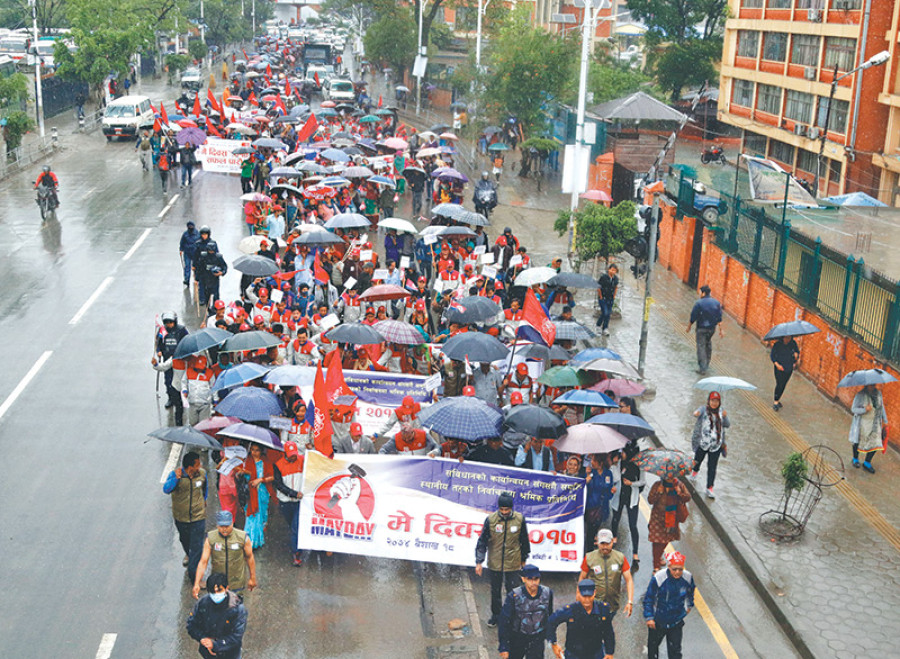Money
May Day celebrated amid improved labour relations
Nepal marked the 128th International Workers’ Day, also known as May Day, on Monday amid improved labour relations which have existed in the industrial sector over the last few years.
Bibek Subedi
Nepal marked the 128th International Workers’ Day, also known as May Day, on Monday amid improved labour relations which have existed in the industrial sector over the last few years.
There has been a marked improvement in relations between management and labour compared to the past. Industrial unrest has declined significantly.
Nepali industry has not seen major strikes or lockouts in recent years, although such activities were the trademark of domestic industries some years ago.
Both companies and trade unions agree that labour relations have improved remarkably over the last few years. Trade union maturity that has evolved lately, according to industrialists, has been one of the major reasons behind the improved labour relations.
“Trade unions have shown much maturity when it comes to labour issues in recent times,” said Shekhar Golchha, newly elected senior vice-president of the Federation of Nepalese Chambers of Commerce and Industry (FNCCI), the largest umbrella organization representing the private sector.
As Nepali trade unions are highly politicised, the maturity shown by them is the result of the political transition that the country has gone through after the abolition of the monarchy and the restoration of democracy.
“Initially, during the time of political change, labour unions were highly motivated by political parties and their demands from industrialists were, at times, unreasonable,” added Golchha. “But with the political leaders of major parties focusing on economic prosperity, trade unions too have been behaving more rationally lately.”
Bishnu Rimal, president of the General Federation of Nepalese Trade Union (GEFONT), shared similar views. “Earlier, there was struggle to change the regime and, at times, some of the demands of the trade unions may have been a bit ambitious. But now, things have changed,” said Rimal. “We and the industrialists have started to believe in coexistence.”
Improved labour relations, according to the private sector, will be further harmonious once the Labour Bill is endorsed by Parliament. The new Labour Bill, drafted on the basis of the Labour Act 1992 after tripartite consultations between the government, trade unions and industrialists, is at the parliamentary International Relations and Labour Committee. Discussions on the bill at the House panel are over and it is close to being tabled in Parliament.
The Labour Bill has sought to address most of the concerns of trade unions as well as industrialists. The highlight of the upcoming act is the inclusion of a ‘no work no pay’ provision as demanded by industrialists for a long time. It means employers are not obliged to pay wages to labourers if they go on strike and factories remain shut.
Other salient features of the Labour Bill are classification of labourers into five categories, authority to employers to lay off workers under certain conditions, restrictions on keeping bonded labourers and child workers and a provision under which employers have to contribute 20 percent of the basic salary to the social security fund.
Employers can hire labourers under five categories—regular, contractual, time bound, partial and emergency. The new bill has authorised employers to lay off employees in case of financial crisis, merger of two companies leading to redundancies and other situations of crisis.
Labour flexibility is one of the major demands of industrialists while social security is the main concern of trade unions. The upcoming act is likely to address both concerns, according to Rimal. “As we have worked together with industrialists and government officials while drafting the new Labour Bill, it will be acceptable to all,” he added.




 9.89°C Kathmandu
9.89°C Kathmandu















